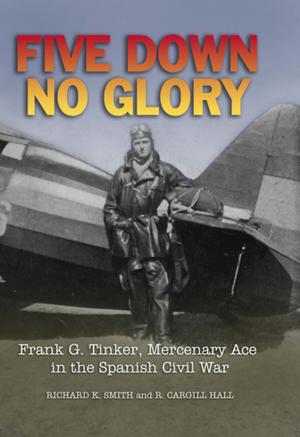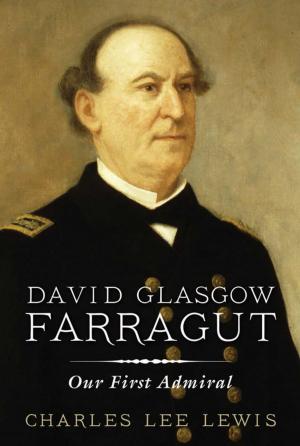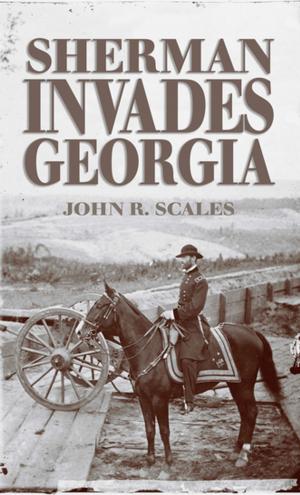| Author: | James J. Altieri | ISBN: | 9780870210891 |
| Publisher: | Naval Institute Press | Publication: | October 15, 2014 |
| Imprint: | Naval Institute Press | Language: | English |
| Author: | James J. Altieri |
| ISBN: | 9780870210891 |
| Publisher: | Naval Institute Press |
| Publication: | October 15, 2014 |
| Imprint: | Naval Institute Press |
| Language: | English |
The outlook for a victory of the Allied Powers was dim in the spring of 1942. Britain was being unmercifully bombed and threatened with invasion. Rommel's forces were rampaging across North Africa toward Alexandria. Only two American divisions had arrived in the European theatre. Stationed in Ireland, they were green, untested troops, their combat deployment a matter of speculation even to the high command. It was then that General Lucien K. Truscott conceived the plan of organizing an American commando unit to be known as the "Rangers," a name made famous in American history. "On every frontier the name has been one of hope for those who required protection; of fear, for those who have lived outside the law." Major William O. Darby was placed in command of the first Ranger Battalion. Darby proved himself an officer of such extraordinary powers of leadership that his unit was forever after known as "Darby's Rangers." This was the organization destined to be the first American ground forces to battle the Germans in Africa and Europe in World War II. The Spearheaders is an account from an enlisted man's point of view of the intensely dramatic career of the Rangers from their beginnings as soldiers in Ireland, through their grueling training in Scotland, to their role in the bloody fighting in North Africa, Sicily and Italy.
This is a story of war as intimate and individual as the diaries, letters and memories on which it is based. Here are the courage, determination, hope and occasional moments of weakness of gallant American boys from the "next doors" of Maine and California, Oregon and Florida. Here, too, are unforgettable pictures of the grandeur and misery of war, bawdiness and bloodshed, its triumphs ultimate futilities. Dominating the aggregation of his startlingly individualized subordinates is the commanding figure of Major Darby himself. Like Caesar he could call each of his men by name, congratulate them: "A helluva shoot . . . every company came through ... a beautiful job now we got to get our tails out of here"; inspire them: "The outfit that can slip up the enemy and stun him with shock and surprise - that is the outfit that will win battles, and that is the outfit I want"; console them: "I'm sorry . . . damned sorry . . . I knew you would put on a good show."
The Spearheaders is no ordinary war history. In line with present Army doctrine, it demonstrates the value of tough, resourceful, hard-trained troops, capable of swift dispersal and penetration instead of massed movement susceptible to atomic blasts. Its vivid writing, its empathy with those who served, its appreciation of the Ranger spirit more than the Ranger achievements, make it rekindle in the hearts and minds of all Americans the great heritage, proud history and high ideals of their nation.
This is a story of war as intimate and individual as the diaries, letters and memories on which it is based. Here are the courage, determination, hope and occasional moments of weakness of gallant American boys from the "next doors" of Maine and California, Oregon and Florida. Here, too, are unforgettable pictures of the grandeur and misery of war, bawdiness and bloodshed, its triumphs ultimate futilities. Dominating the aggregation of his startlingly individualized subordinates is the commanding figure of Major Darby himself. Like Caesar he could call each of his men by name, congratulate them: "A helluva shoot . . . every company came through ... a beautiful job now we got to get our tails out of here"; inspire them: "The outfit that can slip up the enemy and stun him with shock and surprise - that is the outfit that will win battles, and that is the outfit I want"; console them: "I'm sorry . . . damned sorry . . . I knew you would put on a good show."
The Spearheaders is no ordinary war history. In line with present Army doctrine, it demonstrates the value of tough, resourceful, hard-trained troops, capable of swift dispersal and penetration instead of massed movement susceptible to atomic blasts. Its vivid writing, its empathy with those who served, its appreciation of the Ranger spirit more than the Ranger achievements, make it rekindle in the hearts and minds of all Americans the great heritage, proud history and high ideals of their nation.
The outlook for a victory of the Allied Powers was dim in the spring of 1942. Britain was being unmercifully bombed and threatened with invasion. Rommel's forces were rampaging across North Africa toward Alexandria. Only two American divisions had arrived in the European theatre. Stationed in Ireland, they were green, untested troops, their combat deployment a matter of speculation even to the high command. It was then that General Lucien K. Truscott conceived the plan of organizing an American commando unit to be known as the "Rangers," a name made famous in American history. "On every frontier the name has been one of hope for those who required protection; of fear, for those who have lived outside the law." Major William O. Darby was placed in command of the first Ranger Battalion. Darby proved himself an officer of such extraordinary powers of leadership that his unit was forever after known as "Darby's Rangers." This was the organization destined to be the first American ground forces to battle the Germans in Africa and Europe in World War II. The Spearheaders is an account from an enlisted man's point of view of the intensely dramatic career of the Rangers from their beginnings as soldiers in Ireland, through their grueling training in Scotland, to their role in the bloody fighting in North Africa, Sicily and Italy.
This is a story of war as intimate and individual as the diaries, letters and memories on which it is based. Here are the courage, determination, hope and occasional moments of weakness of gallant American boys from the "next doors" of Maine and California, Oregon and Florida. Here, too, are unforgettable pictures of the grandeur and misery of war, bawdiness and bloodshed, its triumphs ultimate futilities. Dominating the aggregation of his startlingly individualized subordinates is the commanding figure of Major Darby himself. Like Caesar he could call each of his men by name, congratulate them: "A helluva shoot . . . every company came through ... a beautiful job now we got to get our tails out of here"; inspire them: "The outfit that can slip up the enemy and stun him with shock and surprise - that is the outfit that will win battles, and that is the outfit I want"; console them: "I'm sorry . . . damned sorry . . . I knew you would put on a good show."
The Spearheaders is no ordinary war history. In line with present Army doctrine, it demonstrates the value of tough, resourceful, hard-trained troops, capable of swift dispersal and penetration instead of massed movement susceptible to atomic blasts. Its vivid writing, its empathy with those who served, its appreciation of the Ranger spirit more than the Ranger achievements, make it rekindle in the hearts and minds of all Americans the great heritage, proud history and high ideals of their nation.
This is a story of war as intimate and individual as the diaries, letters and memories on which it is based. Here are the courage, determination, hope and occasional moments of weakness of gallant American boys from the "next doors" of Maine and California, Oregon and Florida. Here, too, are unforgettable pictures of the grandeur and misery of war, bawdiness and bloodshed, its triumphs ultimate futilities. Dominating the aggregation of his startlingly individualized subordinates is the commanding figure of Major Darby himself. Like Caesar he could call each of his men by name, congratulate them: "A helluva shoot . . . every company came through ... a beautiful job now we got to get our tails out of here"; inspire them: "The outfit that can slip up the enemy and stun him with shock and surprise - that is the outfit that will win battles, and that is the outfit I want"; console them: "I'm sorry . . . damned sorry . . . I knew you would put on a good show."
The Spearheaders is no ordinary war history. In line with present Army doctrine, it demonstrates the value of tough, resourceful, hard-trained troops, capable of swift dispersal and penetration instead of massed movement susceptible to atomic blasts. Its vivid writing, its empathy with those who served, its appreciation of the Ranger spirit more than the Ranger achievements, make it rekindle in the hearts and minds of all Americans the great heritage, proud history and high ideals of their nation.















